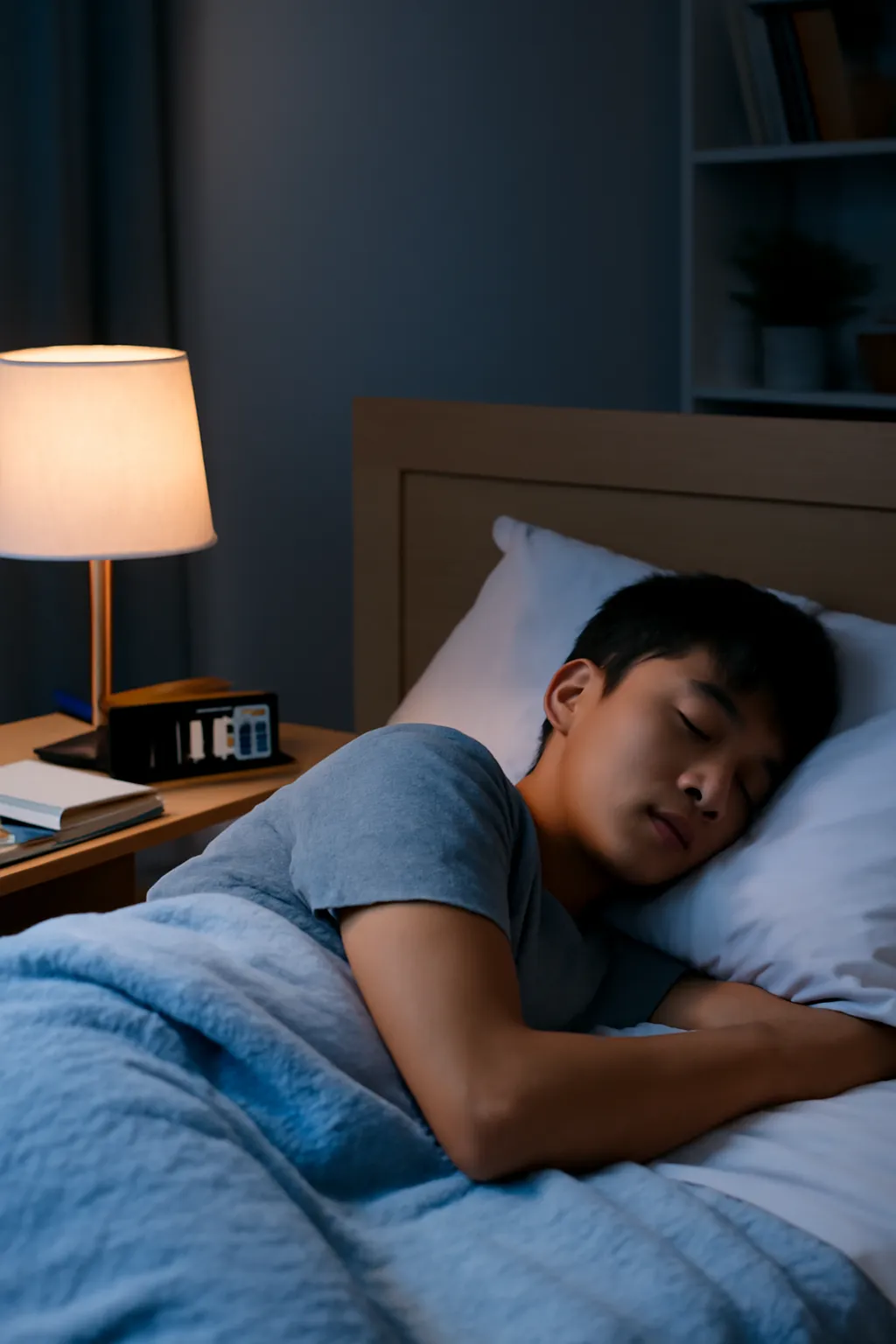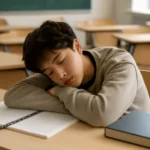Are you wondering how much sleep high school students really get? Does the average sleep time for elementary school students differ by region or age? Dive into the details of students’ sleep habits, with a special focus on Korean students and their average sleep times. How does sleep impact academic performance?
Average Sleeping Time for High School Students
Sleep is crucial for all stages of life, but for high school students, it’s particularly vital due to their demanding schedules. With academic pressures, extracurricular activities, and social lives, many high school students often struggle to maintain a healthy sleep routine.
How Much Sleep Do High School Students Get?
In general, high school students need around 8 to 10 hours of sleep per night for optimal health and cognitive function. However, studies consistently show that most high school students get far less. A 2023 survey revealed that the average sleep time for U.S. high school students is around 7 hours, while students in other parts of the world, such as Korea, might sleep even less.
This deficit in sleep is due to several factors:
-
Late-night study sessions: High school students often stay up late to complete assignments and prepare for exams.
-
Social media use: A growing number of teenagers spend hours on their phones at night, further delaying bedtime.
-
School start times: In many regions, high schools start early, forcing students to wake up before dawn, which further reduces sleep.
Case Study: Impact of Sleep Deprivation on Performance
Take the example of a high school student preparing for final exams. Maria, a 17-year-old student, regularly gets around 6 hours of sleep during exam periods, sacrificing rest in favor of studying. While this may seem like a practical choice, studies show that sleep deprivation negatively affects memory, concentration, and problem-solving abilities—key components for exam success.
Similarly, students who get adequate sleep are shown to perform better in school. A report from the National Sleep Foundation emphasized that students who get at least 8 hours of sleep tend to have better academic outcomes, fewer mood swings, and improved overall well-being.
Want to know more about how sleep affects academic performance? Check out more details here:
Average Sleeping Time for Elementary School Students
Elementary school students, while not burdened with the same academic pressures as high schoolers, still require sufficient sleep for optimal growth and cognitive development. Unlike older students, the sleep needs of children in elementary school are often not as compromised, but it’s still an area of concern for parents and educators alike.
What is the Ideal Sleep Time for Elementary Students?
The American Academy of Sleep Medicine recommends that elementary school students (ages 6-12) get 9 to 12 hours of sleep each night. Unfortunately, the reality is often different. Reports indicate that many elementary students get around 8 hours of sleep on average, particularly in urban environments where long commutes and extracurricular activities impact bedtime.
In rural or suburban areas, children might get closer to the recommended amount, as they typically have less screen time and fewer obligations in the evenings. However, this is not always the case.
Case Study: Sleep’s Role in Child Development
Consider a typical elementary school student, Liam, who gets 9 hours of sleep each night. His parents encourage him to wind down without screen time 30 minutes before bed, and as a result, he wakes up refreshed and ready for school. Studies suggest that children who consistently receive adequate sleep experience better physical and mental development, including improved attention span, emotional regulation, and memory retention.
Want to learn more about sleep routines for young children? Click below to explore further:
The Average Sleeping Time for Korean High School Students
In Korea, academic pressure is especially intense, leading to a nationwide concern about the sleep habits of students. The average sleeping time for high school students in Korea is particularly alarming, with many students experiencing significant sleep deprivation.
Why Are Korean High School Students Sleeping Less?
Korean high school students typically face a demanding educational system, with many attending private tutoring sessions (hagwons) after school. This rigorous academic routine leaves students with little time for rest. Studies have shown that the average sleep time for Korean high school students is around 5 to 6 hours, which is far below the recommended 8 hours.
How Does This Affect Their Health?
Sleep deprivation among Korean high school students has been linked to a range of physical and mental health issues. For instance, a lack of sleep can increase stress levels, leading to anxiety and depression. Moreover, poor sleep affects the immune system, leaving students more susceptible to illnesses and affecting their overall academic performance.
To discover more about sleep in Korean students and its effects, click below:
👉 Dive Deeper into the Issue 👈
Conclusion
Sleep is a critical element in the academic, physical, and emotional well-being of students, whether they are in elementary school or high school. Understanding the average sleep times of students, especially those in high-pressure environments like Korea, can help parents, educators, and policymakers take steps to promote better sleep habits.
The takeaway is clear: Sleep should never be sacrificed for study or extracurricular activities, and there should be a nationwide effort to ensure students get the rest they need to perform well academically and stay healthy. As we look toward the future, it’s crucial to keep raising awareness about the importance of sleep, especially as it plays a role in the long-term success and well-being of young individuals.
As the famous quote by Benjamin Franklin reminds us, “Early to bed and early to rise makes a man healthy, wealthy, and wise.”






